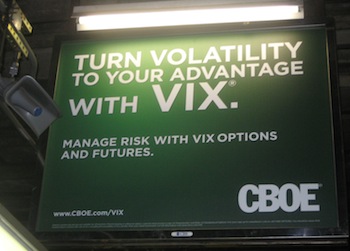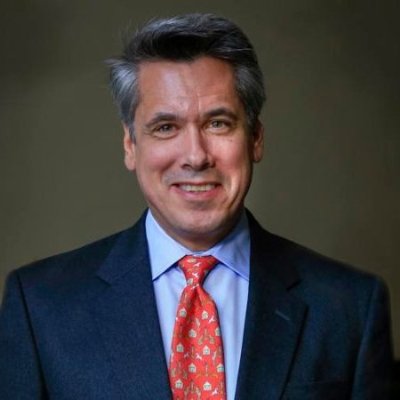As Ed Provost took the stage at the Green Valley Ranch Resort & Spa in Las Vegas to explain how a software malfunction had shut the Chicago Board Options Exchange for three-and-a-half hours, he was surrounded by people who were victims of similar disruptions.
On the panel with him were Jeromee Johnson from Bats Global Markets Inc., which canceled its initial public offering last year after failing to get the shares to trade on its own exchange, and Tom Wittman of Nasdaq OMX Group Inc., whose first- quarter profit was cut in half because of costs related to its mishandling of Facebook Inc.’s IPO in May. Six people on the attendee list were from Knight Capital Group Inc., which almost went bankrupt after a software error flooded the equity market with bad trades.

“So you’re telling us computers break occasionally?” TD Ameritrade Holding Corp.’s Paul Jiganti asked Provost during the panel discussion, which started just as the CBOE was opening after the delay.
“Every once in a while,” replied Provost, chief business development officer at CBOE Holdings Inc.
The CBOE’s closure yesterday underscored how common errors have become among the exchanges that dominate the world’s largest financial market. It also showed how the fragmented market can help cushion the blow when one venue shuts down, as trades for most products were able to flow to the 10 other U.S. options markets.
Technology Fails
“To paraphrase the bumper sticker, IT happens,” James J. Angel, a professor of finance at Georgetown University in Washington, said in an e-mail. “Our markets work pretty well most of the time, but sometimes the technology fails. We need to have containment in place to protect the rest of the market from the inevitable glitches.”
The outage frustrated investors still shocked from a swoon in the market on April 23 that briefly erased $136 billion from Standard & Poor’s 500 Index stocks after a hacker sent a fake post from an Associated Press Twitter account saying there had been explosions at the White House that injured President Barack Obama. Traders and analysts at firms including Aite Group LLC and Conifer Securities LLC said the dip may have been exacerbated by computer algorithms that read news feeds.
The CBOE said that its software malfunction was not the work of hackers, with both Provost and company spokeswoman Gail Osten denying that outside forces were responsible even as they said they didn’t know immediately what caused the issue.
Options Conference
Bill Brodsky, chairman and chief executive officer of CBOE Holdings, and Provost were at the Las Vegas resort for the annual Options Industry Conference, where Bermuda shorts and golf shirts outnumbered business suits. The conference marked the 40th anniversary of the CBOE, which was founded in 1973 when exchange-listed options were first traded in the U.S.

About 450 people were in attendance with representatives from firms such as Goldman Sachs Group Inc., BlackRock Inc. and Group One Trading, the primary market maker for VIX options. The three-day event mixes discussions on topics from fee structures and a proposed tax on derivatives with hospitality cabanas, trips to the Las Vegas strip and a tournament at Rio Secco Golf Club outside the city.
While their exchange was shut in Chicago, Brodsky and Provost read from their smartphones in a huddle of CBOE executives outside the resort. CBOE Chief Branding Officer Carol Kennedy blocked a Bloomberg News reporter from approaching the two for comment, referring him to a press release.
‘Zero Business’
The CBOE published its first notice about the technical breakdown experienced by users trying to download products at 8:18 a.m. New York time. The exchange initially planned to start trading at 10:15 a.m., 45 minutes after it normally begins, and delayed that by five minutes. At 10:21 a.m. it canceled that plan.
“We are doing zero business,” Greg Richards, who trades VIX and S&P 500 options as an institutional broker at Chicago- based PTR Inc. on the CBOE floor, said in an interview during the shutdown. “It is not good for the CBOE in a competitive atmosphere.”
The CBOE said in a later statement that the malfunction “affected validation of certain orders and the communication of cancel/fill reports” and was corrected.
The CBOE Futures Exchange, C2 Options Exchange and CBOE Stock Exchange were operational, the company said. The company runs two options markets, a stock exchange and a futures bourse.
Equity Derivatives
While most equity-derivatives contracts are traded on multiple exchanges, which boosts competition for the quoted prices, or bids and offers, the CBOE is the exclusive venue for options based on the S&P 500 Index and the CBOE’s own VIX gauge of equity volatility.
VIX and S&P 500 options trading has surged to record levels. Volume of options on the equity volatility measure climbed to a daily average of more than 630,000 this year, data compiled by Bloomberg show. That’s up 42 percent from 2012 and is the most since the data started in 2006. Almost 820,000 S&P 500 options traded each day in 2013 on average, up 17 percent from last year and more than in any year since 2000.
The delayed open prompted investors to seek other products to use in hedging, such as options on the SPDR S&P 500 ETF Trust, according to Jeremy Wien, head of VIX trading at JPMorgan Chase & Co. in New York. About 1.9 million options contracts on the ETF changed hands in the half-day’s worth of trading before the CBOE reopened. That compared with a full-day average of 2.4 million this year, data compiled by Bloomberg show.
‘Sarcastic Cheer’
The CBOE, which accounts for about 25 percent of options volume, was able to start trading in S&P 500 products at 12:50 p.m. New York time and the rest of the exchange opened at 1 p.m. rather than the usual 9:30 a.m.
The open of the exchange in Chicago was greeted with a “sarcastic cheer” from floor traders, according to Jim Phillips, who works at DSM Trading and trades futures and options in the S&P 500 pit of the CBOE.
“They razzed the guy giving the updates,” said Phillips, 28, in an interview outside the exchange. “I just couldn’t believe it was happening. Just unbelievable that it could be compromised so quickly.”
The Securities and Exchange Commission was monitoring the situation “as is our practice,” spokesman John Nester said.
Shares of CBOE finished yesterday’s session up 16 cents, or 0.4 percent, at $36.61 after losing 0.4 percent earlier. The stock is up 24 percent this year.
Revenue Source
Index contracts including the S&P 500, the most-active in the U.S., generated more transaction fees than any other product at the CBOE in the fourth quarter.
Index contracts accounted for 64 percent of CBOE’s total options transaction fees last year, compared with 55 percent in 2011, according to regulatory filings. Transaction fees for options on equities slid to $13.5 million in the fourth quarter of last year, 25 percent less than in the same period in 2011.
The CBOE’s breakdown is the latest in a series of computer malfunctions that have rattled exchanges and trading firms in the three years since a firm’s faulty algorithm triggered the so-called flash crash that briefly wiped out $862 billion in market value in less than 20 minutes.
In January, Bats acknowledged that computer issues allowed about 12,000 trades that violated rules intended to ensure all investors get the best prices for equities, 10 months after its failed IPO. Knight almost went out of business in August as a result of improperly installed software. Charges related to the Facebook IPO cost Nasdaq $10 million it set aside for an SEC probe as well as $62 million regulators cleared as compensation to brokers who lost money in the stock’s debut.
‘Not Delighted’
A power failure shut the CBOE for 35 minutes in August 1999 and a computer malfunction halted trading for about two-and-a- half hours in February 2000. The exchange’s systems malfunctioned in November 2007 and disrupted trading for about an hour.
“We expect all this backbone infrastructure to work seamlessly,” said Behrak Shahriari, a U.S. equities fund manager with Montrusco Bolton Investments Inc. in Montreal. His firm manages more than C$5 billion ($4.9 billion). “We’re not delighted to see this happening. It kind of highlights that the stock exchanges we use can at any given time just shut down. ”




